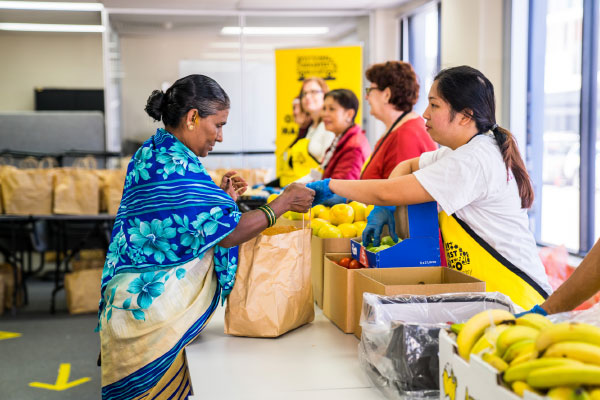Environmental, social and governance
Goodman’s Board is committed to delivering the Company’s business strategy in a sustainable way.
It has entrusted the Risk and Compliance Committee to oversee the Group’s risk management framework, which includes how we respond to material ESG matters and how we manage climate risk. Importantly, its oversight extends to how we are tracking on our targets to reduce emissions, increase renewable energy use and measure and ultimately lower the embodied carbon within our developments.
Our sustainability policy and associated strategy (available on the Goodman website) is managed by the Goodman Group Head of Sustainability, reviewed annually and approved by the Risk and Compliance Committee.
We give quarterly updates to the Risk and Compliance Committee, which provides strategic feedback on our performance and channels information to Goodman’s Board. The Board prioritises and monitors our progress towards our sustainability targets, which are incorporated into the performance assessment and remuneration structure for Goodman’s management teams.
The overall assessment of Goodman’s long-term incentive remuneration, in respect to vesting conditions of the September 2021 Performance Rights, will include the following specific sustainability targets for FY22. The FY22 targets form a subset of the full long-term objectives:
-
Renewable energy – Increasing our global renewable energy usage to include 70% of electricity generated from renewable sources (include the allocation of renewable energy certificates) as we progress to our long-term targets of 100% renewable energy use by 2025.
-
Solar Power – 65MW of new solar PV installations or commitments (on-site and off-site sources) as we progress to our 2025 400MW target*.
-
Carbon – Maintaining carbon neutral operations (within our direct operational control) by reducing emissions and using verified carbon offsets.
-
Carbon – Embodied carbon emissions of new developments to be calculated and considered in investment papers, on a globally consistent basis in preparation for carbon neutral developments.
-
TCFD – Maintaining and updating our climate disclosures in line with the TCFD guidelines.
-
Occupancy – Maintaining a >95% occupancy rate.
*Subject to government, local authority and network operator approvals, and meeting community or social issues









